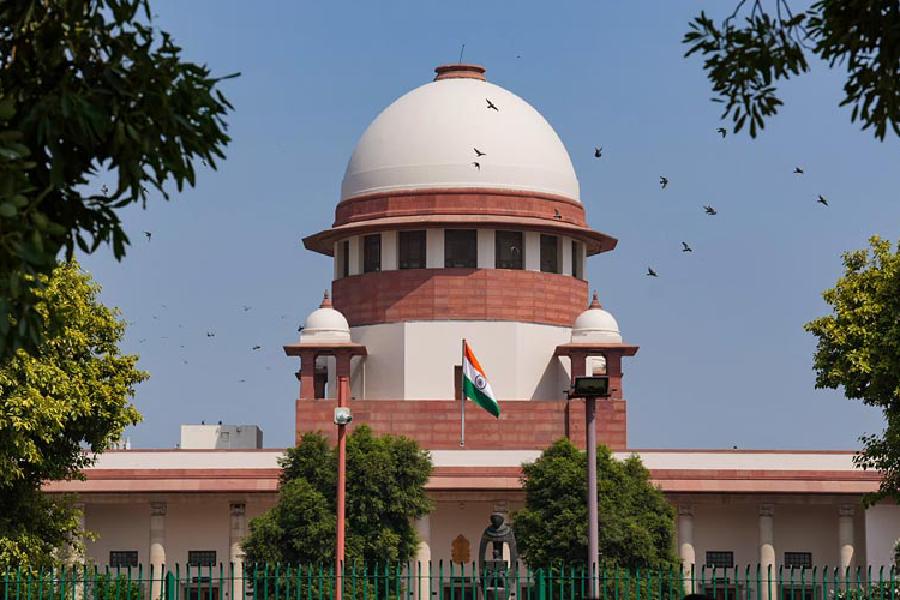The Supreme Court on Tuesday decided to refer the constitutional validity of the sedition law to a five-judge constitution bench, brushing aside the Centre’s plea that the matter was under consideration before a parliamentary standing committee.
The Centre, led by attorney-general R. Venkataramani, had sought adjournment of a batch of PILs against the sedition law as laid down in IPC Section 124A on the ground that a parliamentary committee was examining the British-era law against the backdrop of the Narendra Modi government seeking to replace the Indian Penal Code with the Bharatiya Nyaya Sanhita Bill.
A three-judge bench headed by Chief Justice of India D.Y. Chandrachud said while dictating the order that even if the sedition law was repealed, those already facing trial under it would not get any reprieve.
“We are not inclined to consider the request for deferring the consideration of the constitutional challenge in these batch of matters for more than one reason.... It is a well-settled proposition that any new penal law cannot be applied with retrospective effect. So long as Section 124A of the IPC continues to remain on the statute book and even if the new Bills become law, there is a presumption that any new law in the penal statute will have prospective and not retrospective application,” CJI Chandrachud said.
The bench, which included Justices J.B. Pardiwala and Manoj Mishra, said it was necessary to refer the matter to a five-judge bench in view of an earlier judgment by another five-judge bench in 1962 in the Kedar Nath Singh vs State of Bihar case wherein the sedition law was upheld.
The present bench was of the view that since the 1962 verdict was delivered in the context of an interpretation of Article 19 relating to free speech, it required to be examined afresh in view of subsequent judgments by various apex court benches relating to protection of fundamental rights, personal liberty and right to privacy, including the Justice K.S. Puttaswamy case relating to the validity of the Aadhaar law.
“In our view the appropriate course is to direct the paper to be placed before the Chief Justice of India to consider that the batch of cases can be heard by a bench of at least five judges. We direct the registry to place before the Chief Justice of India the file so that an appropriate decision can be taken on the administrative side to form a bench of at least five judges,” the Supreme Court said.
The court was dealing with a batch of PILs filed by veteran journalist Arun Shourie, retired army officer V.G. Vombetkere, Trinamul MP Mohua Moitra and various others for quashing the sedition law. Under Section 124A, a person can be convicted and sentenced to life imprisonment.
The government seeks to replace sedition with a new offence of “endangering the unity” of the country. Section 150 of the Bharatiya Nyaya Sanhita Bill says: “Whoever, purposely or knowingly, by words, either spoken or written, or by signs, or by visible representation, or by electronic communication or by use of financial means, or otherwise, excites or attempts to excite, secession or armed rebellion or subversive activities, or encourages feelings of separatist activities or endangers sovereignty or unity and integrity of India; or indulges in or commits any such act shall be punished with imprisonment for life or with imprisonment which may extend to seven years and shall also be liable to fine.”
In May last year, a three-judge bench led by then CJI N.V. Ramana had stayed all proceeding under the sedition law until the top court decided on the constitutionality of the provision.











